A Call for Unity Beyond Religion and Ethnicity

Bismillahir Rahmanir Raheem
A Call for Unity Beyond Religion and Ethnicity
Respected Brothers and Sisters,
If we observe the political, economic, and social conditions of the Indian subcontinent and the world at large today, we see a landscape dominated by conflict, distrust, hatred, violence, war, bloodshed, terrorism, extremism, communal riots, murder, and sexual violence. The powerful oppress the weak, the rich exploit the poor, rulers suppress the governed, injustice prevails over justice, and the cunning deceive the innocent. In short, human rights violations are rampant across the world. Unable to find a way out of this crisis, thoughtful and conscientious individuals are left feeling helpless and lost.
Endless efforts are being made to eradicate injustice and oppression. Thousands of international, national, and social organizations, associations, and institutions are working tirelessly for peace. Religious events such as sermons, gatherings, spiritual assemblies, prayers, and rituals are taking place continuously. Yet, has crime and injustice ceased even for a single day? Have they diminished in any way? No, they have not. As a last resort, states have turned to force. They have strengthened their law enforcement agencies, developed and deployed advanced technologies, stockpiled modern weapons and ammunition, and enacted increasingly strict laws. To eliminate crime, governments have declared wars against terrorism, drugs, violence against women, and corruption. Despite all these efforts, peace remains elusive. If you examine statistical data, you will find that the levels of crime, oppression, bloodshed, exploitation, and injustice that existed a hundred years ago have multiplied significantly today.
Seeking refuge from this raging fire of unrest and searching for mental and spiritual peace, people are turning to churches for prayers, temples for worship, and mosques for their daily devotions. They are reciting the Quran, the Gita, the Bible, and the Tripitaka in their homes. The devout seek guidance from religious scholars, priests, monks, and clerics, hoping that these spiritual leaders will show them the path to God and liberation from suffering. However, these religious leaders are offering conflicting directions, and some have even turned people’s faith into a means of personal livelihood.
No way of life, no set of laws, no rituals, prayers, or assurances are bringing people the peace they desperately seek. In short, humanity is in a state of ideological and spiritual bankruptcy. It is like a broken boat drifting aimlessly in a stormy sea, carried wherever the waves take it. Everywhere we look, destruction looms. Mankind now stands at the brink of a third world war. Is this how humanity will perish?
The Path to Liberation Has Been Found
By the infinite mercy of Allah, the solution to humanity’s dire predicament has been discovered. The true path has been revealed to Hezbut Tawheed. This is the path of unity—uniting all of humanity, breaking down the walls of division, and binding people together in the spirit of universal brotherhood. If we walk this path, not only our nation but the entire world will once again be filled with justice, fairness, and peace, inshaAllah.
To understand this path, we must first ask: Where did humanity come from? What is our true identity?
All human beings are the children of the same father and mother, created by the same Creator.
According to the major religious scriptures of the world—such as the Qur’an, Puranas, Vedas, and the Bible—humanity was originally one nation, descended from a single pair of parents. Various religious texts contain similar names for these original parents: Adam and Hawwa in Islam, Adam and Eve in Christianity, and Manu and Shatarupa in Hindu tradition. Even the word Manush (human) is derived from Manu, the primeval father of humanity according to Sanatan beliefs. The descendants of Manu are called Manushya or Manush (humans).
Although humanity has now developed variations in skin color, height, and other physical features due to geographical and climatic differences—and although artificial barriers of race, religion, caste, and nationality have divided people—originally, all humans were one single nation, the children of Adam and Hawwa. This means that Bengalis, Indians, Japanese, Americans, Arabs, Hindus, Muslims, Buddhists, and Christians are not enemies but rather brothers and sisters.
An even greater truth unites them: they are all creations of the same Creator. The Qur’an states that after creating Adam, Allah breathed His spirit (Ruh) into him: "And when I have proportioned him and breathed into him of My [created] soul..." (Surah Al-Hijr, 29)
Thus, the children of Adam are not only the offspring of the same parents but also bear the divine spirit of the same Creator. This means no human being is insignificant or unworthy of respect—whether they are born into a high or low caste, whether they are the child of a laborer or a minister, whether they are Hindu or Muslim. Their true identity is that they were personally created by Allah and carry His divine essence. All humans are equal. The only distinction in status among them is based on righteousness and good deeds.
Allah says in the Qur’an: "O mankind, indeed We have created you from a male and a female and made you peoples and tribes that you may know one another. Indeed, the most noble of you in the sight of Allah is the most righteous of you." (Surah Al-Hujurat, 13)
Unfortunately, Satan (Iblis) has succeeded in making people forget this original identity. As a result, despite being the creation of one Lord, bearing His divine essence, and being the children of the same father, humanity has fallen into endless conflicts. People are so deeply engaged in their own destruction that no organization, law, philosophy, or fear can prevent them from committing injustice, violence, and war. The situation has reached a point where wars and global conflicts are becoming inevitable, leading the entire world toward destruction.
Humanity now stands at the edge of ruin.
What Should We Do to Establish Peace?
Peace-loving people must understand that we did not come into this world without purpose; we have a Creator. The One who created us knows best how we can live in peace and what way of life will prevent injustice, oppression, and bloodshed among us. This undeniable truth has been presented in the Qur’an, where Allah says:
"Does He who created not know? And He is the Subtle, the Acquainted." (Surah Al-Mulk, 14)
Therefore, to establish peace, our first step should be to see if the Creator has given us any guidance. The answer is yes—He has provided guidance throughout human history. In every nation and era, Allah, the Lord of the worlds, sent prophets and messengers to show humanity the right path (Hidayah). Through the establishment of Allah’s clear guidance and way of life, they brought peace to their respective nations.
The guidance (Hidayah) that the prophets and messengers conveyed has always been the same in every era: to accept Allah as the sole lawmaker and ruler. In ancient times, many prophets, messengers, and avatars were also sent to the Indian subcontinent. Over time, many of their histories have been lost, exaggerated, or distorted. However, they, too, called the people of this land toward the Creator’s divine laws. Allah says:
"And We certainly sent into every nation a messenger, [saying], ‘Worship Allah and avoid false gods.’" (Surah An-Nahl, 36)
"And for every nation is a guide." (Surah Ar-Ra’d, 7)
Throughout history, whenever humans have distorted or misinterpreted the Creator’s laws for their own interests or started following their own man-made rules while disregarding the Creator’s commands, society has inevitably fallen into injustice, oppression, and warfare. It is during such times that the prophets, messengers, and avatars have come to remind humanity of the Creator’s guidance.
They sought to bring people back into a covenant where they would follow only Allah’s (the Creator’s) commands and no other. By doing so, they established peace in this world and ensured that Allah would admit them into Paradise in the afterlife. In Arabic, this divine call is expressed as: "La Ilaha Illallah"
Today, many people interpret the phrase "La Ilaha Illallah" in a sectarian way. Since it is in Arabic, some assume it applies only to followers of Islam. In reality, this declaration is not confined to any region, language, or group; it is a certificate of liberation and the key to establishing peace for all people, regardless of religion, race, tribe, language, or nationality.
In Bengali, this declaration means: “We will not follow anyone’s command or law except for Allah’s.” In other words, we reject all man-made systems, rituals, and laws that oppose Allah’s commands and commit to following the life guidelines provided by the Creator.
Is the Creator only for Hindus? Only for Muslims? Only for Buddhists? Only for Christians? No. He is the Creator of all people. He transcends all forms of racial and religious division. He is the Judge, the embodiment of justice, and the ultimate truth. Therefore, His command to all humanity is to accept Him as the sole lawgiver and ruler and to submit unconditionally to His guidance.
The final guide, Hazrat Muhammad (PBUH), was sent to Arab society. He spoke in Arabic, which is why he declared "La Ilaha Illallah" in Arabic. However, he was not sent only for the Arabs—he was sent for all of humanity. Therefore, the call to accept Allah as the sole lawgiver is universal.
This single declaration has the power to save humanity from all forms of unrest and chaos. Regardless of our religion or race, we must unite on the basis of the Creator’s command.
Not Fiction, But History
Throughout the ages, numerous prophets and messengers have come with the correct guidance and life laws from the Creator. In this succession, 1,400 years ago, the final Prophet, the World Prophet, Hazrat Muhammad (PBUH), appeared.
The society into which he was born was a Jahiliyyah (Ignorant) society. Jahiliyyah is an Arabic word meaning a state of ignorance. Arab society during this era was filled with superstition, barbarity, illiteracy, and moral corruption. Injustice, insecurity, conflict, and strife were widespread at every level. Women lived under severe oppression—the birth of a girl was considered a calamity. Women were treated as commodities or mere objects of entertainment throughout their lives. There was no rule of justice; power and brute force determined right and wrong. Warfare and bloodshed were constant. There was a lack of education, knowledge, food, and shelter. It was one of the most uncivilized, barbaric, ignorant, and superstitious societies in the world.
The most astonishing fact is that within just a few years, this hopeless society was completely transformed by the last Prophet, Muhammad (PBUH). A society once consumed by injustice and ignorance became, under the influence of his teachings, a model of justice, fairness, and peace—an incredible transformation that seems almost unbelievable today. The same people who were once steeped in ignorance and barbarism became scholars, pioneers of knowledge, and leaders in technology and education, rising to the highest positions. Those once defined by brutality and ignorance were transformed into enlightened individuals through the teachings of Rasulullah (PBUH).
The peace, justice, and security in society reached such a level that criminal cases stopped coming to the courts for months. People would leave their gold shops open and go to the mosque, yet no one would steal. They slept with their doors unlocked, free from fear.
Economic prosperity flourished to such an extent that food was loaded onto camels and distributed on the streets, yet there were not enough people in need to consume it. Security became so strong that a young, beautiful girl could walk hundreds of miles at night, adorned with gold jewelry, fearing nothing except God and wild animals.
Though this may sound like a legend, it is history. This unimaginable happiness, peace, and prosperity were brought about by the Messenger of God.
Now, the question arises: How did Prophet Muhammad (PBUH) bring about such a golden age, such unparalleled happiness and prosperity, and such a transformation in society?
How Did the Change Happen?
The transformation occurred through a great revolution—a true renaissance. Prophet Muhammad (PBUH) changed the society of Jahiliyyah (ignorance) by establishing the fundamental principle of "La Ilaha Illallah Muhammadur Rasulullah!" This declaration united the Arabs under a simple yet profound idea: following God’s law instead of man-made laws.
However, this transformation was not easy. No system has ever changed effortlessly. It required immense struggle, countless sacrifices, and unimaginable hardships. The journey toward change was paved with loss of life, blood, and tears—the pain of losing loved ones, enduring hunger, poverty, and relentless oppression. Yet, through unwavering faith, perseverance, and dedication, the society of Jahiliyyah was transformed into a civilization of justice, knowledge, and peace.
The Best Nation Became Subjugated
After Prophet Muhammad (PBUH) established the true faith across the Arabian Peninsula, he passed away. However, the struggle for truth and peace did not end with his passing, as his companions—who had lived under his guidance—continued his mission. Following the Prophet’s death, the entire Ummah (community) remained united in their pursuit of peace, sacrificing their families, lives, and wealth. Their relentless efforts led to the establishment of peace across half of the world.
However, after a few generations, the focus of the Ummah shifted. They forgot that the Prophet had dedicated his life to the struggle for peace, and that his companions had continued this mission. Yet, Allah did not revoke this command. In the Qur'an, He says, “If you do not fight for this cause, you will face severe punishment” (Surah At-Tawbah 39). But later generations moved away from this struggle. Instead of striving for justice and peace, they became preoccupied with excessive interpretations of religion, making it overly complex and difficult to understand. Over time, distorted forms of mysticism, monasticism, and asceticism took root in the Ummah, making them introverted, stagnant, and directionless. Meanwhile, the rulers—Sultans and Amirs—abandoned the struggle for peace and became engrossed in material wealth and luxury. Without unity or a clear purpose, the nation became vulnerable to external attacks. Eventually, they succumbed to foreign dominance.
The British Defeated Our Subcontinent
When the British invaded our land, they inflicted unimaginable suffering upon our people. Everyone knows how they exploited us. At that time, we had barns full of rice, an abundance of cattle, and fish in every pond. Our muslin fabric was exported worldwide. Our agriculture, trade, and industry were self-sufficient. Even without gold mines, this land was known as “Sonar Bangla” (Golden Bengal) for its immense prosperity.
India was one of the world's greatest centers of culture and tourism, a land of breathtaking natural beauty, rich resources, and unparalleled diversity. It had mountains, forests, seas, rivers, and deserts—everything that made it a paradise. People of all nations, religions, and races coexisted in harmony. But this wealth and unity attracted the greedy eyes of the British. They entered India disguised as traders, pretending to hold a balance in their hands. Then, through deception and strategy, they seized power and ruled India for two hundred years, turning it into a land of poverty and misery. Their ruthless exploitation led to famines and starvation, causing the deaths of three million Indians.
Even though they physically left India after World War II, their oppression never truly ended. They may have departed, but they left behind their ideology, their political systems, and their way of life—things we still blindly follow today. As a result, we have never been able to stand tall with dignity. Before their arrival, India had no communal riots, no Hindu-Muslim conflicts, and no religious violence. Hindus and Muslims lived together in peace. They bathed in the same ponds, fished in the same rivers, drank milk from the same cows, did business together, and studied in the same schools. There was a strong bond of kinship between them.
But the British came and divided us. They sowed the seeds of hatred between Hindus and Muslims—something entirely against the Creator’s will. For the Creator desires that His creation live in peace, without injustice or oppression. But the British destroyed that harmony. They implemented their sinister “Divide and Rule” policy, turning us against each other while they looted our wealth without resistance. They built their empire using our resources while leaving us impoverished. Even today, we are still struggling to escape the poverty they imposed upon us.
Are We Truly Free?
The great irony is that, despite gaining independence 76 years ago, we still turn to the very people who once enslaved us to change our fate. We live by their laws, follow their economic systems, and uphold their governance structures—yet what have these systems given us? Have they ever brought us true peace? Have they ever united us? Have they ever freed us from hunger? Have they ever ensured the safety and dignity of women?
The painful reality is that, even after all these years, we are still struggling to secure a proper meal. If this system has failed us for so long, isn’t it time we consider an alternative?
Hezbut Tawheed Foundation: What and Why?
The Hezbut Tawheed Foundation was established with the noble goal of uniting humanity into one nation under the banner of religion. The movement's founder, Imam Mohammad Bayazid Khan Panni, hails from the revered Panni family of Bangladesh. The Panni family’s history is rich with contributions to the struggle for justice and freedom. The family traces its lineage back to Sultan Dawood Khan Karrani, a hero who sacrificed his life in 1576 during the Battle of Rajmahal to defend the independence of Bengal from the Mughal empire. The remains of the Karrani family palace stand in Tangail, Bangladesh, and Rajmahal, Jharkhand (India). The family also boasts the legacy of the great Sufi saint Bande Neowaz Ghausudaraj Muhammad bin Yusuf al-Husseini, who is revered by millions of Hindus and Muslims alike at his shrine in Gulbarga, Karnataka.
Imam Mohammad Bayazid Khan Panni is the 11th descendant of Sultan Solaiman Khan Karrani of Gaur, and his ancestors have long been dedicated to the path of Allah for the liberation of mankind. Imam Mohammad Bayazid Khan Panni, continuing this noble tradition, has dedicated all his earnings and inherited property to the cause of Allah’s religion.
The mission of Hezbut Tawheed is to reintroduce the true, original principles of Islam that had been lost over time. The movement seeks to establish justice, peace, and fairness in society by turning these principles into reality. We invite those who seek peace and salvation in the hereafter to join our cause.
Our message is simple: unite under the one true faith. Abandon the man-made ideologies, spells, and laws, and obey the commandments of the Creator. When we come together under this message, we will become brothers, our nation will be united, our leadership will be singular, and our goals in life will be the same. As one body and soul, we will stand firm against all injustice and strive to establish the true faith, Inshallah.
"Those whose hearts will resonate with the call of Allah's Tawheed, and whose souls will yearn for guidance, can contact us at:
Promotion: Hezbut Tawheed India Foundation"
(ID NO-U85300WB2022NPL254079. PAN NO- AAGCH3130B. TAN NO- CALH07493D, MOB NO- 9734681007)
Bose Para, Post+Thana: Pandua, District: Hooghly, West Bengal.
Facebook: www.facebook.com/emamht Website: www.hezbuttawheed.org
Youtube: www.youtube.com/@hezbuttawheed
Images Related to this Post

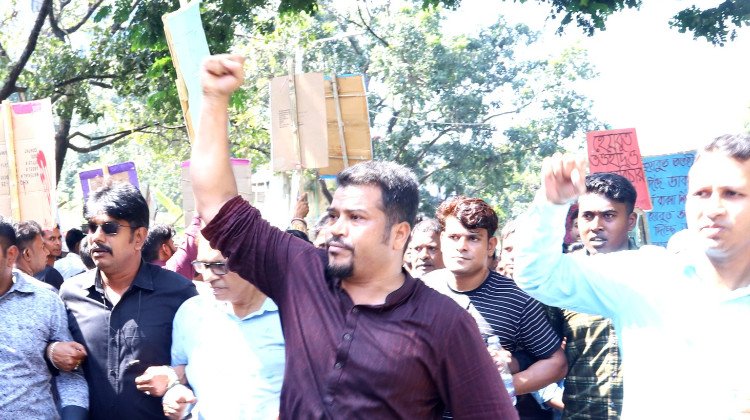

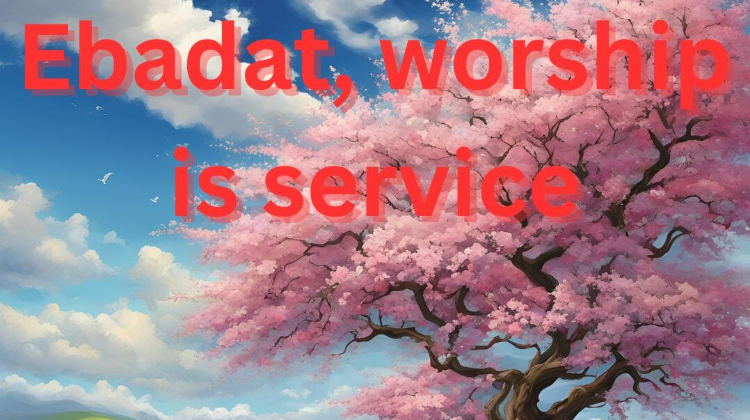
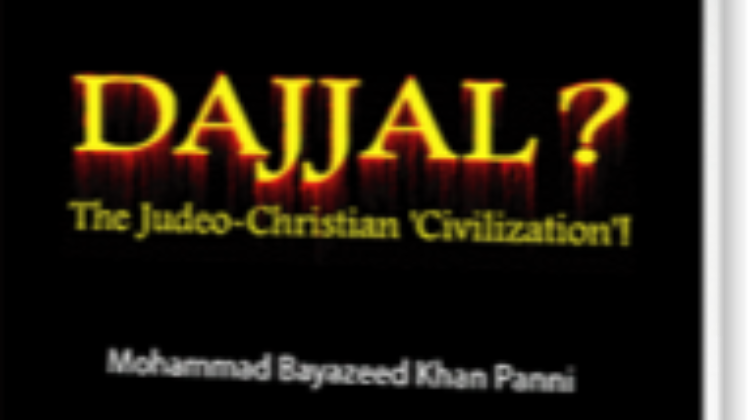
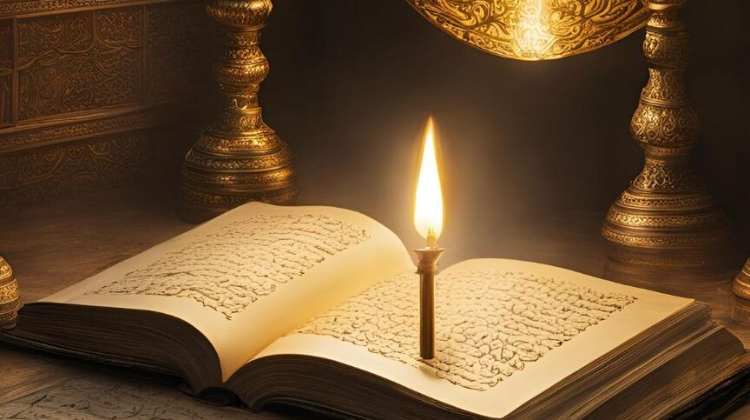


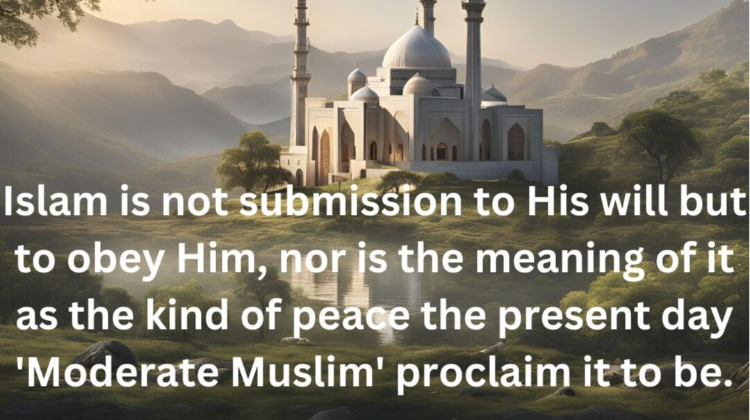

Leave a Comment